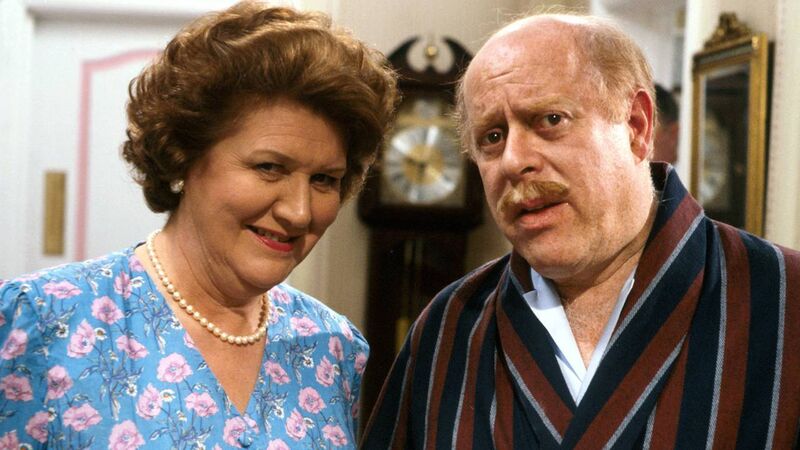Clodagh Finn: An ode to Hyacinth Bucket and the radiant art of growing old

Patricia Routledge and Clive Swift starred in ‘Keeping Up Appearances.’
Hyacinth Bucket, t he poster girl for women with notions, has left us.
That’s pronounced Bouquet, dear. I can just hear “the lady of the house” saying that now as she answers the telephone in , the 1990s comedic gold that struck a chord internationally because social aspirations (let’s be kind) apply everywhere.















